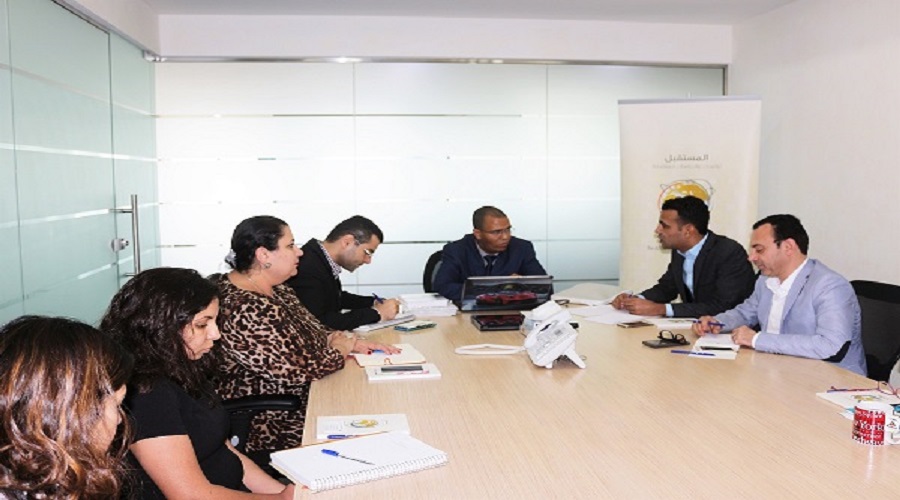On 26 May 2016, Future for Advanced Research and Studies (FARAS) hosted Dr. Bouhnia Goui, Dean of the Faculty of Law and Political Science at the University of Ouargla in Algeria. The workshop tackled the different dimensions of the security challenges faced by Algeria as well as the prospects of the country.
Algeria’s Security Challenges in the Sahel
Concerns about Algeria’s security and the likelihood of seeing the country paying the price of the neighboring regional instability are certainly justified. Algeria has suffered for ten harsh years from all sorts of killings and terrorism during the so-called “Black Decade”.
Warning signs have revealed the “ISIS-isation” of the African coast and the spread of bloody military operations in this region, including some armed factions that adopt an ISIS-inspired methodology to gain exposure and media attention. This trend was manifested for example when Jund al-Khilafah posted a YouTube video on 21 September 2014 of the beheading of a French hostage, Herve Gourdel. In the video, Jund al-Khilafah announced their split from Al-Qaeda in the Islamic Maghreb (AQIM) and pledged loyalty to ISIS. In November 2014, ISIS proclaimed the province of Algeria as part of the organization’s Caliphate.
Dr. Bouhnia explained the Algerian approach to the Sahel crisis as follows:
- In 2009, Algeria, Libya, Mali, Niger and Mauritania agreed on a security plan focusing mainly on creating a joint organized military force comprised of 25 thousand soldiers from the five states’ armies in collaboration with tribal Sahara militias from Tuareg, Arabs, and other tribes.
- Algeria’s 2009 plan facilitated the operations of organized armies from the Sahel States allowing them to track extremists beyond their borders, attacking ISIS strongholds, eradicating sources of logistic and financial support that used to supply the group with arms and funding, and fully controlling the Sahel region. Back then, Sahel States agreed to establish the first joint intelligence database to host all available data about the Al-Qaeda in the Islamic Maghreb and each state committed to providing the database with information to effectively counter the Al-Qaeda affiliated group.
- Algeria, Libya, Mauritania, Mali and Niger agreed to allow the Commanders in Chief of each country to continuously hunt down armed groups affiliated with Al-Qaeda in the Sahara region, and provide state military forces to face these factions within the State witnessing the battles.
- The five countries agreed to eradicate sources financing terrorism, counter-trafficking, and implement investment projects in the northern part of Mali and Niger.
Algeria is hence facing a series of security threats embodied by both Al-Qaeda and ISIS, in addition to the risks emanating from the turmoil in neighbouring countries, namely Libya and Mali, the proliferation of weapons, and threats related to illegal immigration.
According to Dr. Bouhnia, Algeria is the country which possesses sufficient justifications for its anti-terrorism stance. In the 1990s, the country had to fight terrorism on its own incurring financial losses exceeding US$30 billion and 200,000 deaths. Algeria has also suffered from a prolonged political, economic and military siege preventing it from seizing weapons to fight terrorism.
Amidst these turbulences, Algeria is well aware of the pragmatic language often used by western countries. Countries like France and Switzerland are undoubtedly inclined to accept the conditions of armed groups regarding paying ransoms to free hostages. This behavior compelled Algeria to fight continuously, in international and regional fora, to protect its sovereignty and territorial integrity, by refusing to yield to armed factions’ demands.
While facing security challenges and risks, Algeria has supported, during the 2014 African Union Summit held in Addis Ababa, the creation of an emergency response force to address African crises and conflicts.
Algeria’s Prospects
Dr. Bouhnia presented few indicators that might determine prospects in Algeria and its foreign policy as follows:
- The Algerian authorities took advantage of the events and turbulences accompanying the Arabic Spring and used them politically to increase the trust and faith of Algerians in the ruling authority. Many surveys, including the Arab Barometer Survey of 2013, show that 78 per cent of Algerian respondents demand the implementation of progressive non-radical reforms, especially after the Arab Spring.
- The Algerian President still enjoys many authorities which were renewed and strengthened in the 2016 Constitution. In September 2015, President Bouteflika sought to increase the powers of the presidential institution in decision-making. Accordingly, he dismissed the head of Intelligence and Security Directorate, General Toufic (Mohamed Mediene), dissolved the Directorate and formed a new entity directly affiliated to the Presidency. This decision constituted an effort to redesign a new security plan based on having Intelligence as part of a military security organization placed directly under the president’s authority. This decision also represents a message about the supremacy of the presidential power in forging Algeria’s politics. President Bouteflika also wanted to clarify the political and security structure surrounding him to eliminate any power that might challenge his plan for Algeria’s future.
- The concept of “securitization” is the central axis in Algeria in light of the spread of terrorism and the threats from armed extremist groups in neighboring countries and the Sahel region.
- The Algerian military ideology will still be enshrined in the country the way it has always been. Algeria will keep on refusing to take part in any regional or international military initiative, even if it was under an Arab wing. This position was clear when Algeria refused to participate in the Arab Alliance lead by Saudi Arabia against Houthi rebels in Yemen and the French intervention in northern Mali.
In conclusion, Dr. Bouhnia asserted that the future in Algeria would depend on many factors including the role of the administrative and military institutions, the opposition’s vulnerability, and the economic indicators in light of oil prices fluctuations, considered as the backbone of the Algerian economy and its primary financial resource. International and regional alliances would also have a significant role in shaping the future of the country along with the security and counter-terrorism circumstances in the country.


